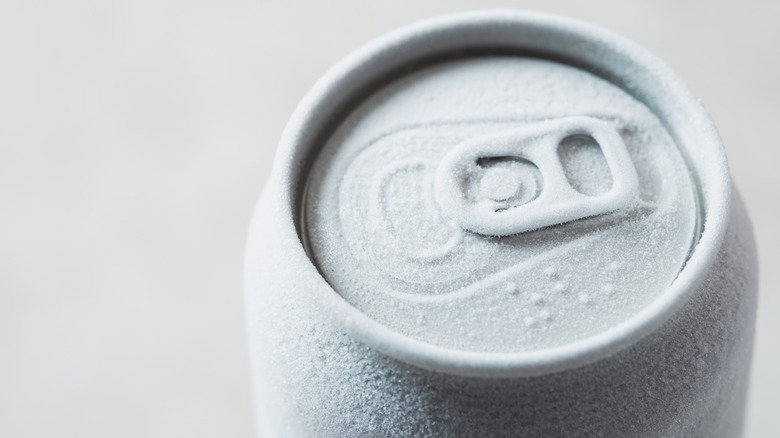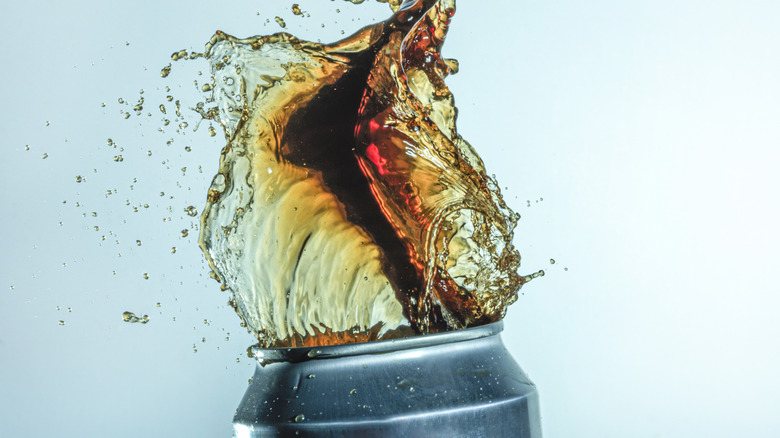Don't Leave That Case Of Soda Or Beer In Your Car During Winter. Here's Why
Winter brings with it a host of concerns and considerations regarding foods and beverages, but this one is arguably the stickiest. Leaving certain drinks in your car in freezing temperatures can actually cause those cans or bottles to explode, creating a huge mess.
Water freezes at 32 degrees Fahrenheit, sodas at around 30 degrees Fahrenheit, and beer, with a standard alcohol by volume (ABV) level of 5%, at about 27 degrees Fahrenheit. The reason your water bottles never explode while other drinks do is because the former does not contain carbon dioxide. Carbon dioxide is what makes many drinks taste so good. It gives sodas and beers their signature fizziness, but it's also a gas. In cold temperatures, the liquid part of a drink will freeze and expand by up to 9%. If the drink is sealed, the carbon dioxide will have nowhere to go, and the increasing pressure will eventually cause the can or bottle to burst.
Of course, it is not guaranteed that your beer or soda will always explode; if you leave your carbonated drink in a car and the temperature only drops just below the beverage's freezing point for less than an hour, you likely won't have an explosion on your hands. Any amount of time over one hour, however, significantly increases the risk of the can or bottle bursting. Leave it overnight in temperatures consistently below the drink's freezing point and the bottle or can is almost certainly going to burst.
How alcohol content affects freezing
One factor that prevents beverages from exploding is their alcohol content. Wine, which has a standard ABV of approximately 12%, has a freezing point of around 15 to 20 degrees Fahrenheit. This is considerably lower than beer, meaning that carbonated wines like Champagne require much lower temperatures to freeze and subsequently burst. (That being said, we still recommend that you never leave white wine in the freezer.) Of course, even stronger beverages, such as vodka, can experience very low temperatures without freezing. Vodka that has an ABV of 40% freezes at minus 16.5 degrees Fahrenheit. However, because it is not carbonated, the vessel containing this beverage will not explode, even if the vodka freezes solid. (This is why you can freeze a bottle of liquor inside a block of ice.)
Can you salvage exploded, frozen drinks? Technically, yes. Provided enough of the liquid stays in the original can or bottle, these drinks are perfectly safe to consume once thawed. Keep in mind that the majority of carbonation will have escaped during the explosion, so your drink will be flatter than usual. Before you take a drink, make sure no shrapnel has ended up in the drink itself. After that, feel free to enjoy the beverage; there's nothing wrong with making the best of a bad situation.


